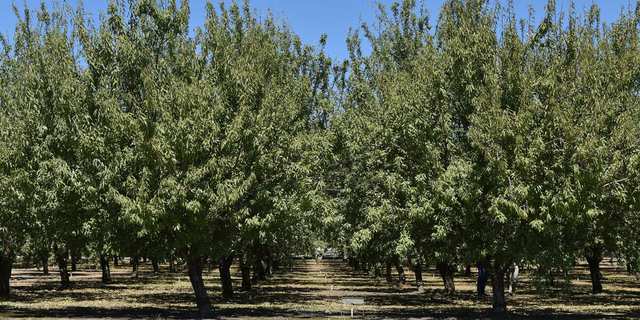Enemies against Almond trees
Eurytoma Amygdali - Eurytoma Amygdali
Eurytoma Amygdali is the most important enemy of the almond tree, it has one generation per year and causes a great loss of production. It looks like a black winged ant, wintering as a developed larva in the infected almonds, which usually remain mummified in the tree.
It is recommended to start spraying. Repeat the sprays every 7-8 days until the hardening of the endocarp. The sprays should be done during the noon hours of the day, when we have the greatest sunshine and higher temperatures, because then we have the greatest output of the prosperity of the wide area. We do not spray on cloudy days as well as cloudy hours of the day. because we have no exit of the insect.
Phomopsis or Branch Ulcer (Phomopsis amygdali, syn.Fusicoccum amygdali)
Symptoms: The disease causes drying of the twigs of the year, necrosis of the buds and brown irregular to circular spots on the leaves. The damage begins with the formation of a necrotic spot at the base or around an bud. In larger branches it causes ulcers in which it overwinters. It also overwinters on infected leaves that fall to the ground. The installation of the pathogen in the shoots of the year takes place during the period of fall of the leaves or flowers.
Growing Conditions: Wet and rainy weather (during the growing season) is necessary for the infection. Temperatures for fungal growth are 5-36 ° C (excellent 27-29 ° C). Infections are spread by water (rain, dew) over short distances, while by wind, insects and propagating material over large distances.
Control: Cultivation measures: Removal and destruction by fire of all infected shoots (regardless of season). This measure should be applied by all growers in the area as soon as the symptoms of the disease appear, to reduce and eliminate outbreaks of the pathogen. Spraying with selective and approved for cultivation plant protection products.
Information: agrocapital.gr




